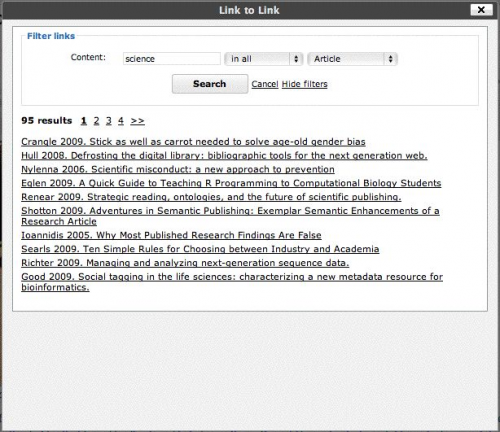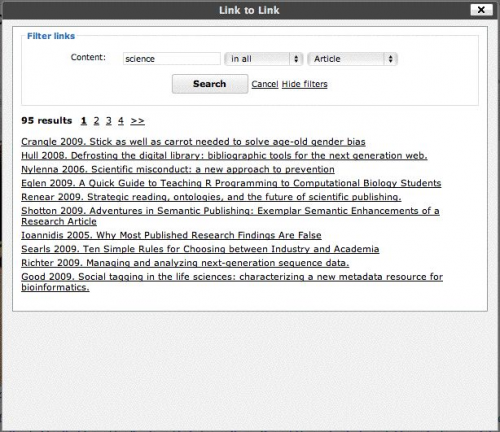ScienceOnline2011, the fifth annual international meeting on Science and the Web, is only two days away. I am very excited for many reasons, most importantly because it gives me the chance to meet many online friends in person – again or for the first time.
On Saturday I will help moderate two (related) sessions: How is the Web changing the way we identify scientific impact and Having fun with citations. The first session will be about alternative ways to measure scientific impact, and about the alternative types of publications we can measure. The second session is all about citations. We use them all the time in scholarly communications, but we don’t really think about them. To give a couple of examples: why are there so many different citation styles, why is it so difficult to find open bibliographic data, how can we describe why we decided to cite something, or how can we cite things that are not publications?
Since I suggested this session a few months ago, my thinking about citations has changed. Citations should be easy to use, wherever we need them. Even though he have a number of clever reference management tools, the process is still too complicated. What would really help is an easier format for references, and the best format I can think of is the ubiquitous internet link. I have written about links before, and I have spent the last few weeks to work on WordPress plugins to better handle links for scholarly works. Today I released the Link to Link plugin:

The Link to Link window in the WordPress editor should look familiar to users of traditional reference managers. You search for references and then insert them into the text. The references are stored in the WordPress Links Manager, and you can get them in there using the BibTeX Importer plugin I wrote two weeks ago. Both plugins are available from the WordPress plugins directory and can be installed directly from WordPress.


